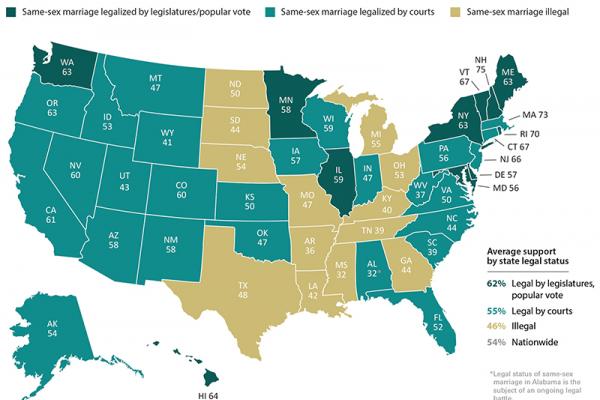Jun 12, 2015
Most Americans — including people from every major religious group — predict gay marriage will be legalized nationwide when a hotly anticipated Supreme Court ruling is announced later this month.
Among those who favor legalizing same-sex marriage, 80 percent think the high court will rule their way, according to a survey by the Public Religion Research Institute released June 11. And among those who oppose gay marriage, 47 percent say that’s the likely outcome, too.
Read the Full Article

Already a subscriber? Login
